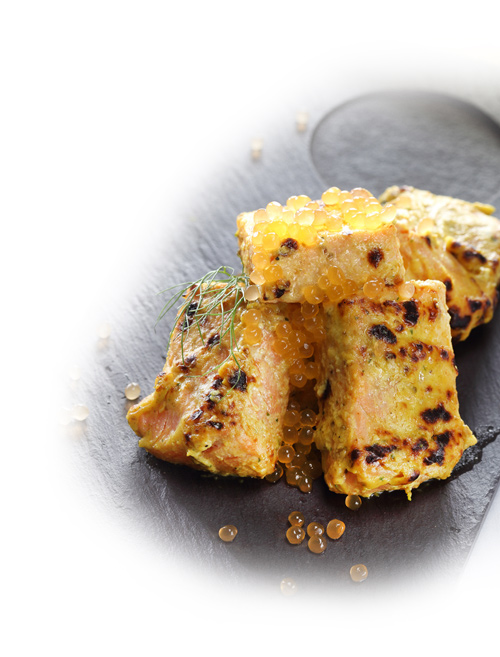

"Food is the Ambassador of a nation" ~ JIGGS KALRA
Introducing the Three Pillars of Masala Library by Jiggs Kalra

Modern / Contemporary Indian cuisine is a common term used by many restaurants, within India as well as internationally. In most cases, the term comes to denote the fusion-ness of the cuisine in a broad perspective.
At Masala Library by Jiggs Kalra, we have used only traditional recipes, combining it with molecular gastronomy in a seamless way, yet not fusing it with the dishes. Our aim remains at presenting the cuisine at its simplistic best, preparing them using authentic ingredients, as they were prepared many years in the past, however, adding an Avant-garde element to the whole menu and experience.
Like making a dish as simple as Paneer Makhani and presenting it in a big sized Tart or a gourmet dish like Tandoori Guchchi accompanied alongside mint chutney foam. Apart from the unique presentation of dishes, the menu also has elements such as Amuse bouche, served both to prepare the guest for the meal and to offer a glimpse into the chef's approach to the art of cuisine and Sorbets, which act as palate cleansers, digestives or simply to stimulate the appetite between courses, enabling guests to experience true flavours of each dish ordered.
The use of molecular elements such as agar agar, maltodextrin, lecithin and spheres have been done to give a gastronomic and international gourmet experience to the cuisine at Masala Library by Jiggs Kalra while keeping the authenticity of the cuisine intact.
The popular belief is that the kebab spread through Asia along with the campaigns of Genghis Khan. As the Mongol cut a swath of destruction and mayhem, sweeping through Central Asia and carving an Empire up to the fringe of Europe, he, it is suggested, inadvertently, created the crescent of kebab—from Mongolia to the South of Spain. He also sent some rulers scurrying across the Hindu Kush. Many of them found refuge in the Hindu heartland. In their wake came the Kebab. It is largely assumed that the Kebab is a delicacy from the North-East Frontier Province of pre-partition India, whereas there are enough evidences that its roots go down as far as the Deccan plateau and Eastern India.
Truth be told, elsewhere kebab was—and still is—rustic fayre. A spit, raw meat sprinkled with salt, barbecued—raw or burnt—and gobbled. In India, kebab-making has always been a sublime art, nursed by its cooks through millennia, leaving the other 'creators' of kebab in awe and with Masala Library by Jiggs Kalra, we are endeavouring to offer the same simplicity of this awe inspiring preparation.
Indian cuisine is not just one of the oldest known cuisines in the World, but has also had its share of worldwide acclaim over the past five decades. It is one of the most revered and written about cuisines in the world, with some legendary restaurants, globally, serving to heads of States, Royalties and celebrities alike.
The Indian cuisine, in its entirety, is renowned for its Iconic Curries. It is the most commonly eaten meal at homes across the geographical landscape of India. Whether it is a simple yellow lentil curry adorning the dining scene across the tables in North India or a rich mustard laden fish curry from the banks of West Bengal, the curries have ruled the dining scene in India for many a millennia.
The Iconic Curries of India presented at Masala Library by Jiggs Kalra blend the history, geography and philosophy of each of these unique dishes along with Mr. Jiggs Kalra's years of research, in absolute detail. The Great curries of India at Masala Library incorporates the use of exotic spices with intricate cooking techniques to achieve the complex, savory tastes associated with the finest of curries known to the Cuisine.

 Main Navigation
Main Navigation





